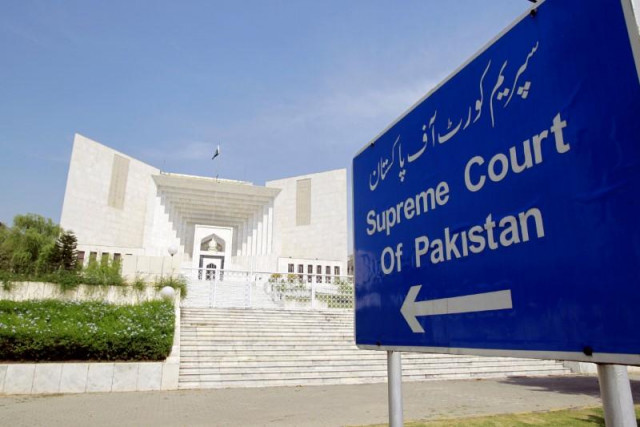Can SC hold ministers accountable for performance?
Debate rages on apex court’s Constitutional power to scrutinize executive branch officials

A view of the Supreme Court of Pakistan in Islamabad. PHOTO: REUTERS
The article says, “The President, a Governor, the Prime Minister, a Federal Minister, a Minister of State, a Chief Minister and a Provincial Minister shall not be answerable to any court for the exercise of powers and performance of functions of their respective offices or for any act done or purported to be done in the exercise of those powers and performance of those functions”.
It is learnt that Federal Railways Minister Sheikh Rashid also expressed apprehension over the ongoing judicial activism during a cabinet meeting on Tuesday.
Prime Minister Imran Khan, however, stated that a confrontation with the judiciary may not be good for the executive. He urged ministers to satisfy the judges about their queries.
Former attorney general Ashtar Ausaf Ali believes ministers cannot be held accountable for their performance before a court of law. He stated that the apex court also accepted a similar view in the Amanullah case.
However, former additional attorney general Waqar Rana says that the apex court, in another verdict, had declared that there was no immunity for ministers for unlawful acts. And, referring to the Zahoor Elahi cases, he said the SC had also held that they did not enjoy absolute immunity. Rana believes that the court has the power to scrutinize the executive’s performance but cannot question government functionaries in suo motu proceedings.
Senior lawyers say the Supreme Court has the final word as it interprets the Constitution’s provisions, and has unfettered power to review executive actions under Article 184 (3) of the Constitution.
A discussion has also begun on how Chief Justice of Pakistan (CJP) Gulzar’s judicial activism would be different from the activism of former chief justices Iftikhar Muhammad Chaudhry and Mian Saqib Nisar.
A senior lawyer believes that the judicial activism of Iftikhar and Saqib had been selective and that one political party had been targeted by them. On the other hand, he says, the incumbent CJP’s judicial activism would be across the board. He says the incumbent CJP is known as being honest and upright, has nothing to lose and, therefore, cannot be managed. He said former CJP Iftikhar did not prefer to summon ministers in maladministration issues and relied on federal secretaries, while former chief justice Nisar had started summoning ministers to explain their performance. Now, he said, the same practice is being followed by the incumbent CJP.
It has also been observed that Sheikh Rashid had been a strong supporter of judicial activism during the tenures of former CJPs Iftikhar and Saqib and had even appeared against government functionaries in public interest matters. The Pakistan Muslim League-Nawaz (PML-N) had been a beneficiary of Iftikhar’s judicial activism against the Pakistan Peoples Party (PPP) government while the Pakistan Tehreek-e-Insaf (PTI) had obtained political advantages from Saqib’s activism against the PML-N government. The PTI is now facing a similar situation, with the judiciary raising questions over bad governance.
CJP Gulzar, in his first speech in the full court reference on the eve of CJP Asif Saeed Khosa’s December 20 retirement, had said that corruption and illegalities in all departments of the state needed to be seriously addressed and eliminated and that persons involved in such activities needed to be deterred from engaging in them. This, he said, was the most basic and fundamental aspect which did not allow the country to grow and prosper.












1724319076-0/Untitled-design-(5)1724319076-0-208x130.webp)






COMMENTS
Comments are moderated and generally will be posted if they are on-topic and not abusive.
For more information, please see our Comments FAQ